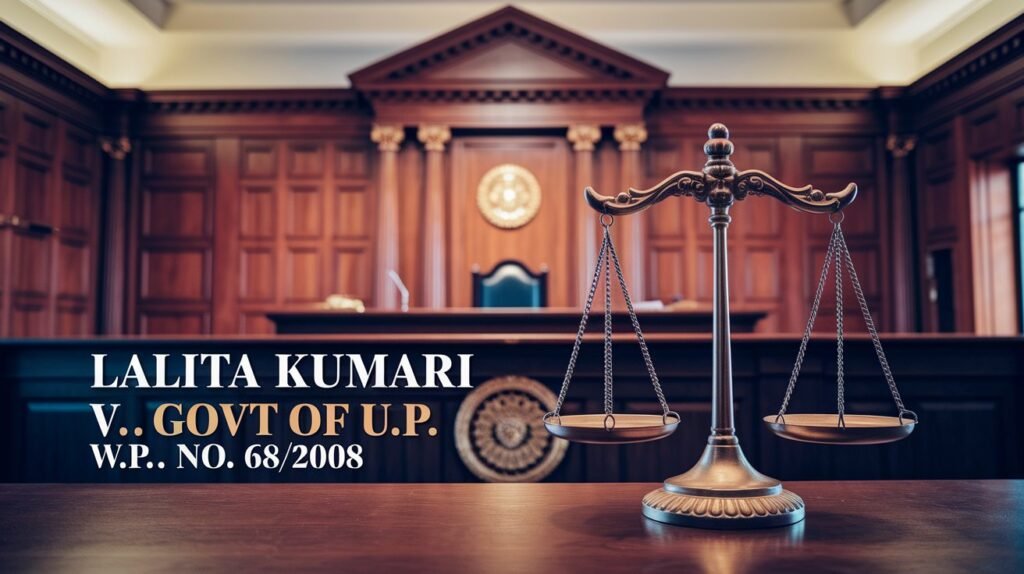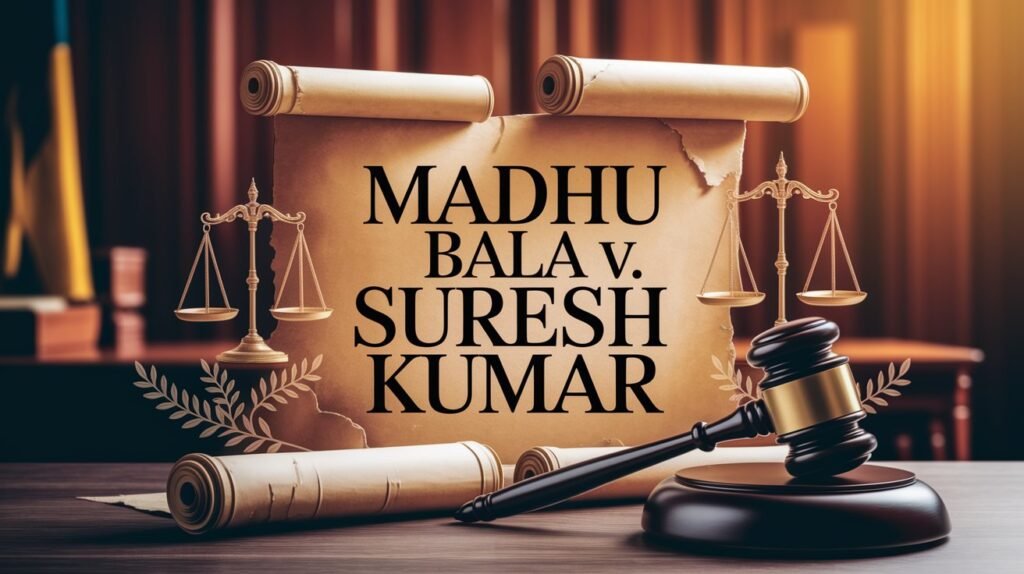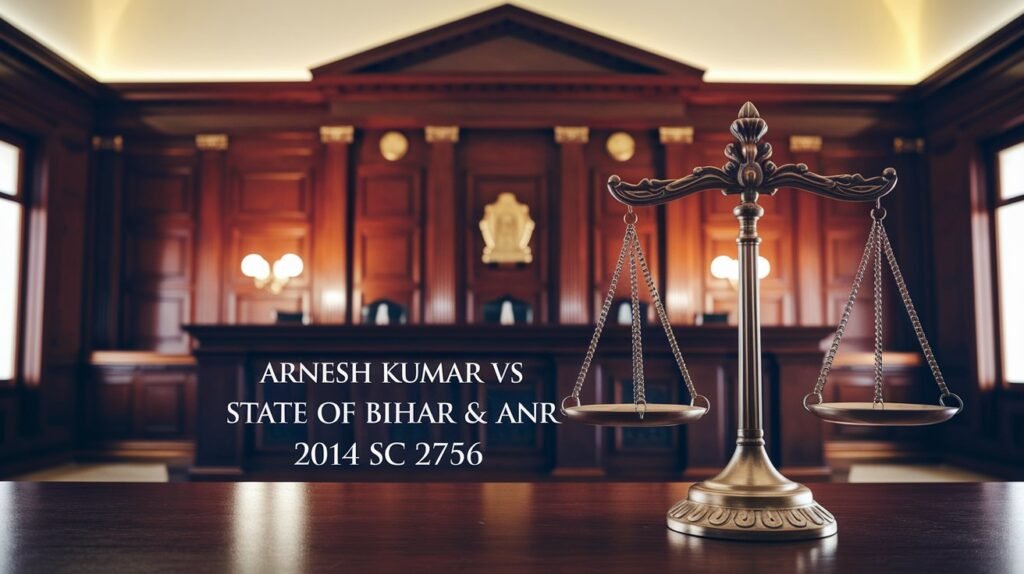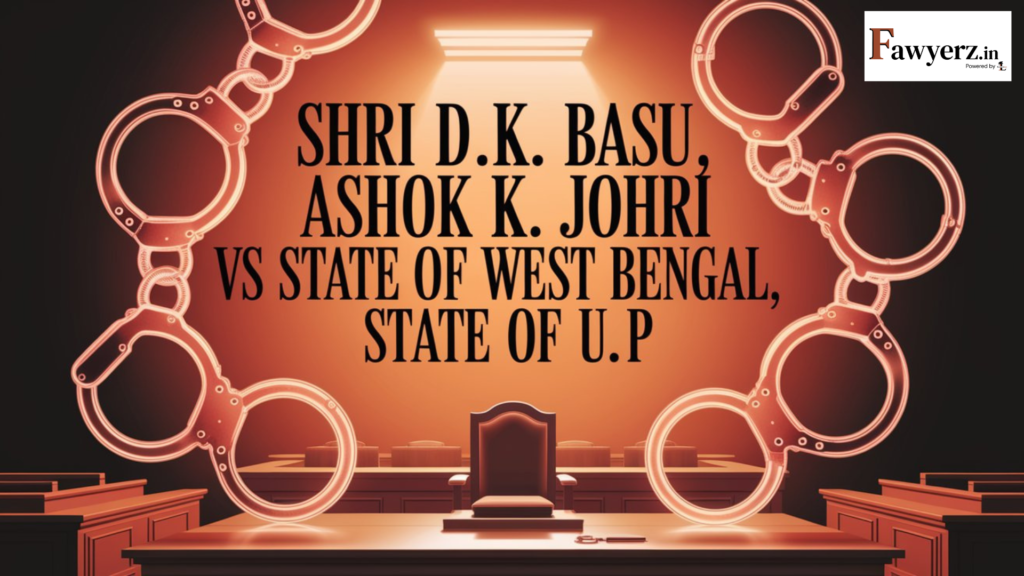Shri D.K. Basu, Ashok K. Johri vs State of West Bengal, State of U.P 1996 (Case Summary)
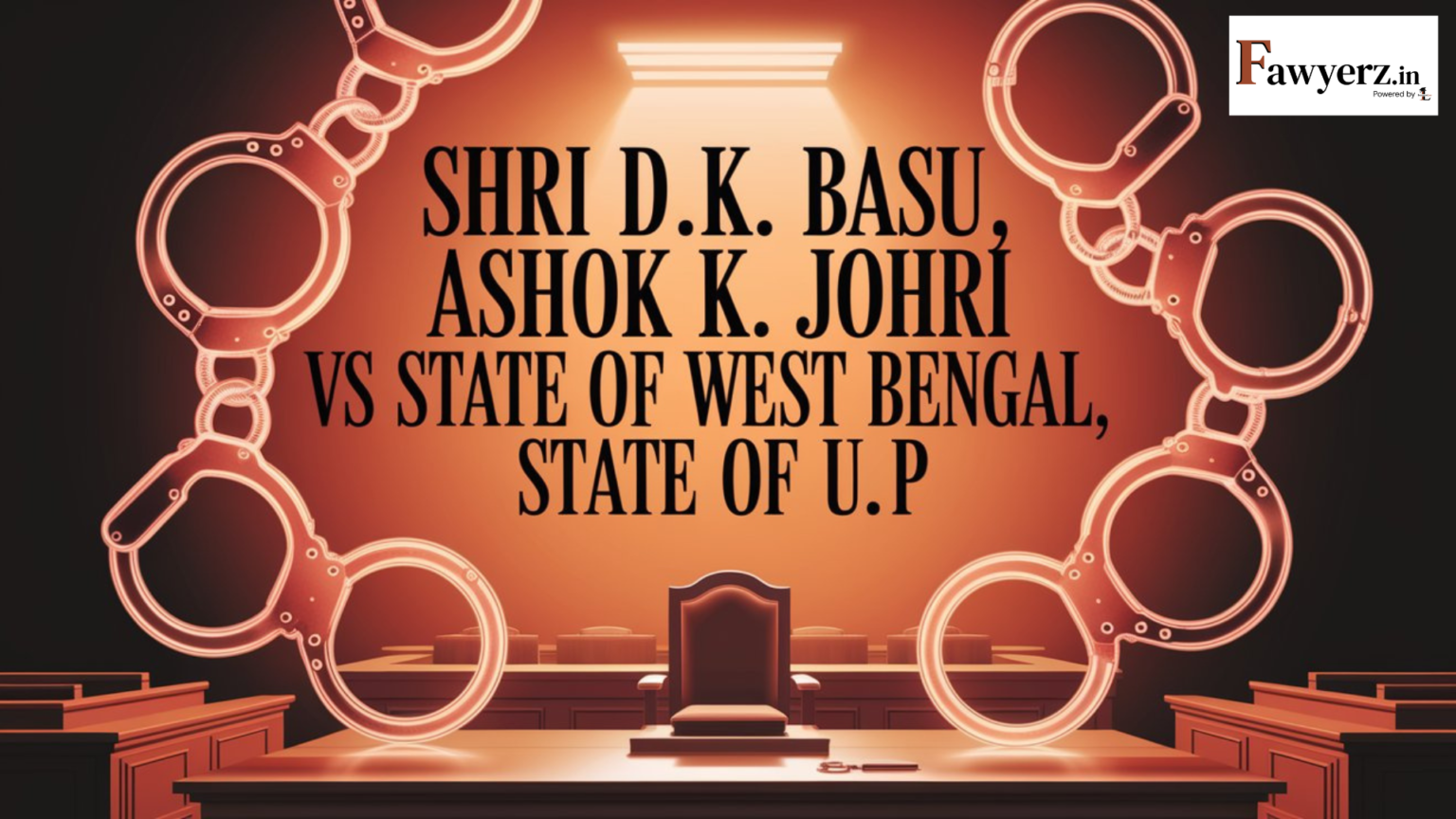
The DK Basu vs State of West Bengal case is a landmark judgment in Indian jurisprudence, addressing the rising concern of custodial violence and establishing guidelines to protect human rights during arrest and detention. This judgment significantly influenced legal reforms, ultimately contributing to the Code of Criminal Procedure (Amendment) Act, 2010 to strengthen protections against custodial torture and abuse.
Table of Contents
ToggleFacts of Shri D.K. Basu, Ashok K. Johri vs State of West Bengal, State of U.P.
- D.K. Basu, Executive Chairman of Legal Aid Services, West Bengal, addressed a letter to the Chief Justice of India, highlighting custodial deaths and urging the Court to develop “custody jurisprudence,” formulate a compensation framework for victims’ families, and ensure accountability.
- Recognizing the seriousness and frequency of complaints regarding custodial violence and deaths, the Court treated the letter as a writ petition.
- Subsequently, in 1987, a letter from Shri Ashok Kumar Johri regarding a custodial death in Aligarh was also treated as a writ petition and consolidated with the existing matter.
- The Supreme Court took note of the rising number of custodial deaths, commonly referred to as “lock-up deaths,” across various states and observed the lack of an effective mechanism to address such cases. Consequently, notices were issued to all State Governments and the Law Commission of India, directing them to submit their responses.
- In compliance with the Court’s directives, affidavits were submitted by several State Governments, the Union Territory of Chandigarh, and the Law Commission of India.
Issues framed
- Whether fundamental rights guaranteed under Article 21 of the Constitution of India were being violated in cases of custodial violence and deaths?
- Whether there was a necessity for the formulation of guidelines or requirements to address the problem of custodial violence and deaths?
Judgment of Shri D.K. Basu, Ashok K. Johri vs State of West Bengal, State of U.P.
The Hon’ble Supreme Court analysed Articles 20(3), 21, 22, 32, and 226 of the Constitution of India; Sections 41, 46, 49, 50, 56, 57, and 176 of the Criminal Procedure Code, 1973; the 113th Report of the Law Commission recommending Section 114-B in the Indian Evidence Act; Article 5 of the Universal Declaration of Human Rights; Article 9(5) of the ICCPR; jurisprudence from England, Ireland, Trinidad and Tobago, and New Zealand.
The Court broadly interpreted Article 21 to include not only the right to life but also the right to live with dignity, encompassing freedom from torture and custodial violence, affirming that this right remains inviolable even upon arrest.
The Court relied on Article 22 to formulate procedural safeguards for arrest and detention. While acknowledging existing statutory protections under the Cr.P.C., the Court found them inadequate to prevent custodial violence due to challenges in securing evidence and prosecuting officials. The Court issued guidelines to ensure transparency and accountability, establishing the principle of public law compensation for custodial deaths and violence. It held the State strictly liable for such violations without the defence of sovereign immunity, and emphasized compensation as a solace rather than a punitive measure.
The Court held that custodial violence, including torture and death in police lock-ups, strikes at the Rule of Law and is a naked violation of human dignity and the fundamental right to life guaranteed under Article 21 of the Constitution of India.
As preventive measures to combat custodial violence and to bring in transparency and accountability, the Court laid down the following requirements to be followed in all cases of arrest or detention until statutory provisions are made:
- The police personnel carrying out the arrest and handling the interrogation of the arrestee should bear accurate, visible and clear identification and name togs with their designations. The particulars of all such police personnel who handle interrogation of the arrestee must be recorded in a register.
- That the police officer carrying out the arrest of the arrestee shall prepare a memo of arrest at the time of arrest a such memo shall be attested by atleast one witness. who may be either a member of the family of the arrestee or a respectable person of the locality from where the arrest is made. It shall also be counter signed by the arrestee and shall contain the time and date of arrest.
- A person who has been arrested or detained and is being held in custody in a police station or interrogation centre or other lock-up, shall be entitled to have one friend or relative or other person known to him or having interest in his welfare being informed, as soon as practicable, that he has been arrested and is being detained at the particular place, unless the attesting witness of the memo of arrest is himself such a friend or a relative of the arrestee.
- The time, place of arrest and venue of custody of an arrestee must be notified by the police where the next friend relative of the lives outside the district or town through the legal Aid Organisation in the District and the police station of the area concerned telegraphically within a period of 8 to 12 hours after the arrest.
- The person arrested must be made aware of this right to have someone informed of his arrest or detention as soon he is put under arrest or is detained.
- An entry must be made in the diary at the place of detention regarding the arrest of the person which shall also disclose the name of he next friend of the person who has been informed of the arrest an the names and particulars of the police officials in whose custody the arrestee is.
- The arrestee should, where he so requests, be also examined at the time of his arrest and major and minor injuries, if any present on his/her body, must be recorded at that time. The “Inspection Memo” must be signed both by the arrestee and the police officer effecting the arrest and its copy provided to the arrestee.
- The arrestee should be subjected to medical examination by trained doctor every 48 hours during his detention in custody by a doctor on the panel of approved doctors appointed by Director, Health Services of the concerned State or Union Territory. Director, Health Services should prepare such a penal for all Tehsils and Districts as well.
- Copies of all the documents including the memo of arrest, referred to above, should be sent to the illaqa Magistrate for his record.
- The arrestee may be permitted to meet his lawyer during interrogation, though not throughout the interrogation.
- A police control room should be provided at all district and state headquarters, where information regarding the arrest and the place of custody of the arrestee shall be communicated by the officer causing the arrest, within 12 hours of effecting the arrest and at the police control room it should be displayed on a conspicuous notice board.”
The guideline was later incorporated into the Code of Criminal Procedure (Amendment) Act, 2010, which played a significant role in regulating the concern of custodial violence.


